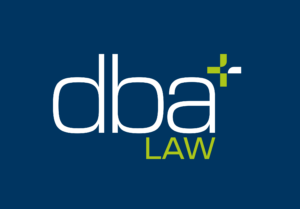 Helena Bannister examines the UK government’s recent announcement to continue with planned reforms to the leasehold system in England and Wales. The next stages of the reforms announced by the government this week have implications for landlords and tenants alike, and all those involved in block management amidst the evolving legislative and regulatory landscape.
Helena Bannister examines the UK government’s recent announcement to continue with planned reforms to the leasehold system in England and Wales. The next stages of the reforms announced by the government this week have implications for landlords and tenants alike, and all those involved in block management amidst the evolving legislative and regulatory landscape.
Proposed Reforms and Timeline
Housing Minister Matthew Pennycook outlined a phased approach to implementing reforms under the Leasehold and Freehold Reform Bill, with some confirmed target dates:
- January 2024: The “two-year rule,” which prevents leaseholders from extending their leases or purchasing their freeholds within the first 24 months, will be abolished.
- Spring 2024: Leaseholders in mixed-use developments will gain expanded rights to manage their properties and will no longer need to pay freeholders’ legal costs in disputes.
- Late 2024: Plans to abolish new leaseholds will be introduced, alongside simplified procedures for contesting unreasonable service charges.
The government also plans to facilitate the transition of existing leasehold flats to commonhold, where homeowners own their units outright and share responsibility for communal areas, but legislative flaws in the 2024 bill need to be addressed.
Implications for Block Management
The reforms carry significant implications for residential block management, particularly in high-risk mixed-use developments:
- Enhanced Leaseholder Rights: Enabling more leaseholders to assume management of their properties may shift the onus from freeholders, but coming with that will be the need for better leaseholder education and governance. Professional and highly skilled managing agents will still be an essential part of block management, particularly with complex mixed use and high risk properties.
- Service Charge Oversight: simplified procedures for service charges, and contesting the same, will be welcomed by all involved if they result in quicker and lower cost resolution of disputes compared to the current Tribunal system. However, the full impact of these changes wont become clear until further consultation on this occurs and regulations are proposed. The administrative burden and legal complexities of any changes will need to be navigated by all involved.
- Building Safety Compliance: Mixed-use developments, which often pose higher safety risks, need to adhere to the evolving statutory obligations that come with the territory- the benefit of obtaining management and control for leaseholders, will bring with it the significant risk and statutory burden.
- Commonhold Transition Challenges: Converting leasehold properties to commonhold will require legal, operational, and administrative adjustments. Historically the legislation has never been workable enough to get off the ground. If the proposed reforms make commonhold a reality, property managers will need to be ready to adapt to and support these transitions to new management models.
Challenges and Industry Reactions
Overall, while most areas of the industry generally welcome parts of the reforms, there are still questions and concerns about implementation and potential impacts on property management practices. The reforms aim to bring fairness and transparency to leaseholders, but will also place greater responsibility on them. Overhauling leasehold in the ways currently proposed, must involve robust collaboration among all stakeholders in order for the reforms to achieve their purpose.
About Helena Bannister
Helena Bannister is a highly experienced property litigator with over 21 years of experience. Her expertise spans a broad spectrum of property litigation, including service charge disputes and advising on complex residential block management issues. Helena is a founder and director of DBA Law, a specialist property law firm specialising in Commercial Real Estate Law, Property Litigation and Block and Residential Property Management Services.
